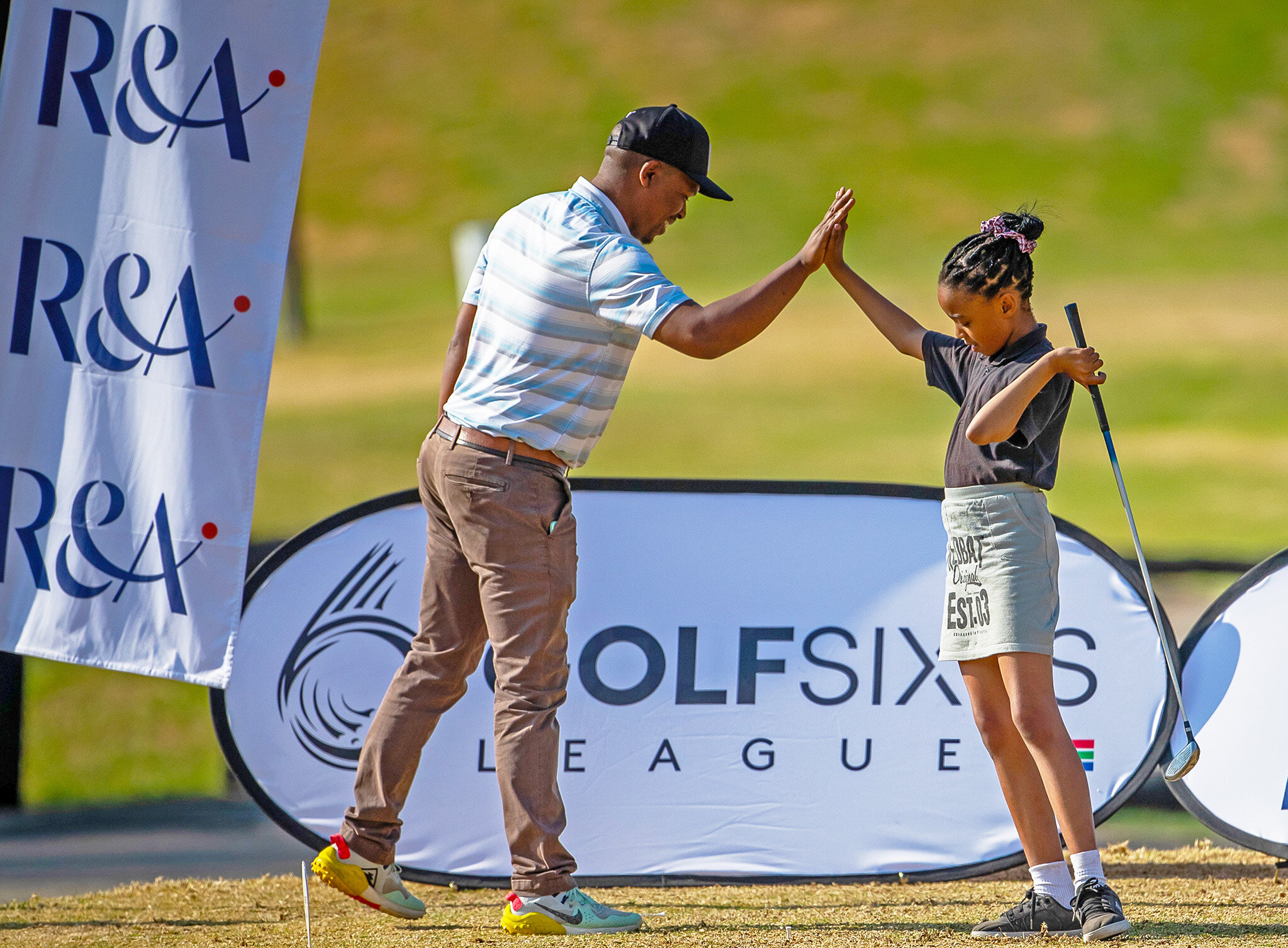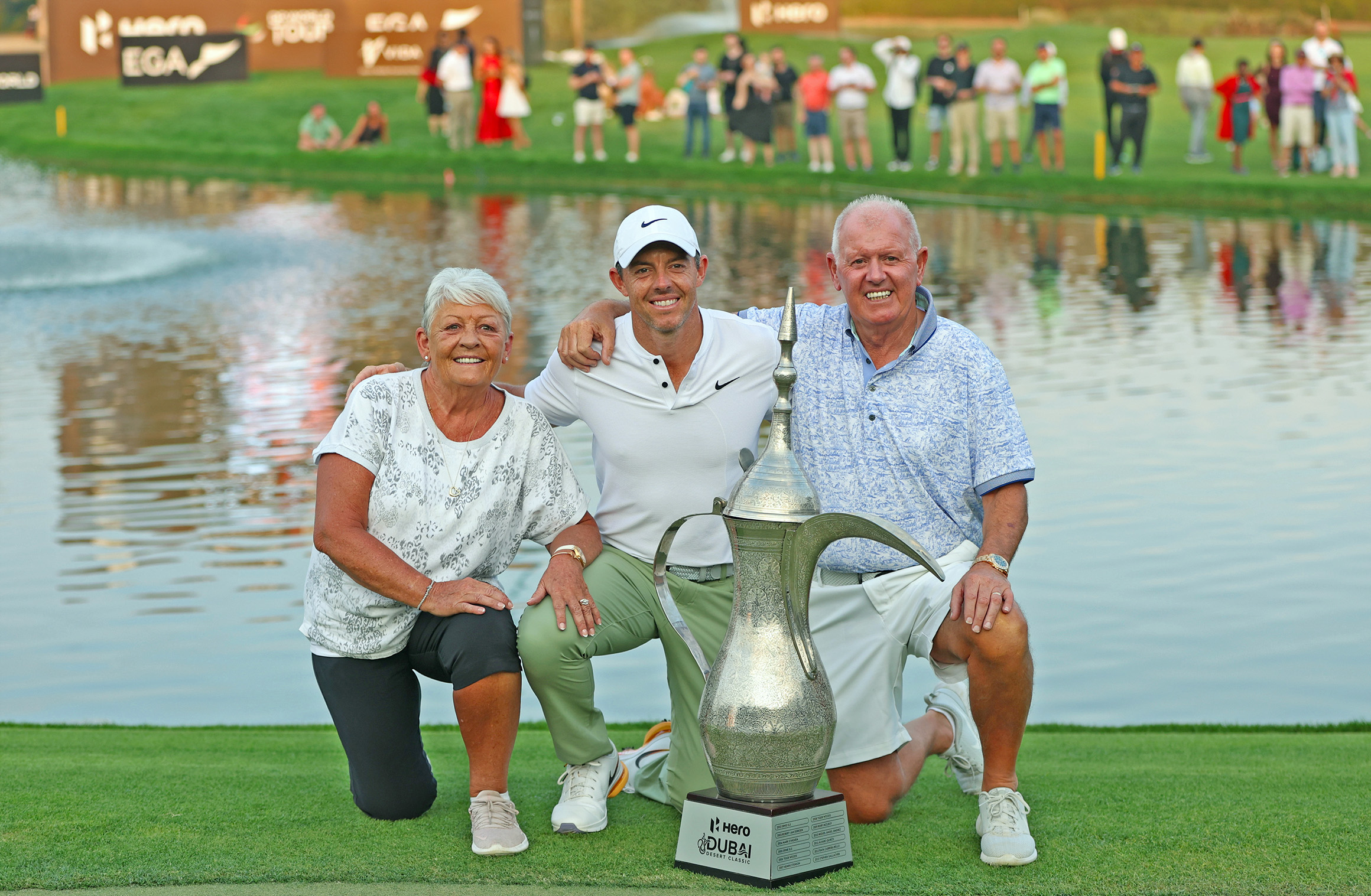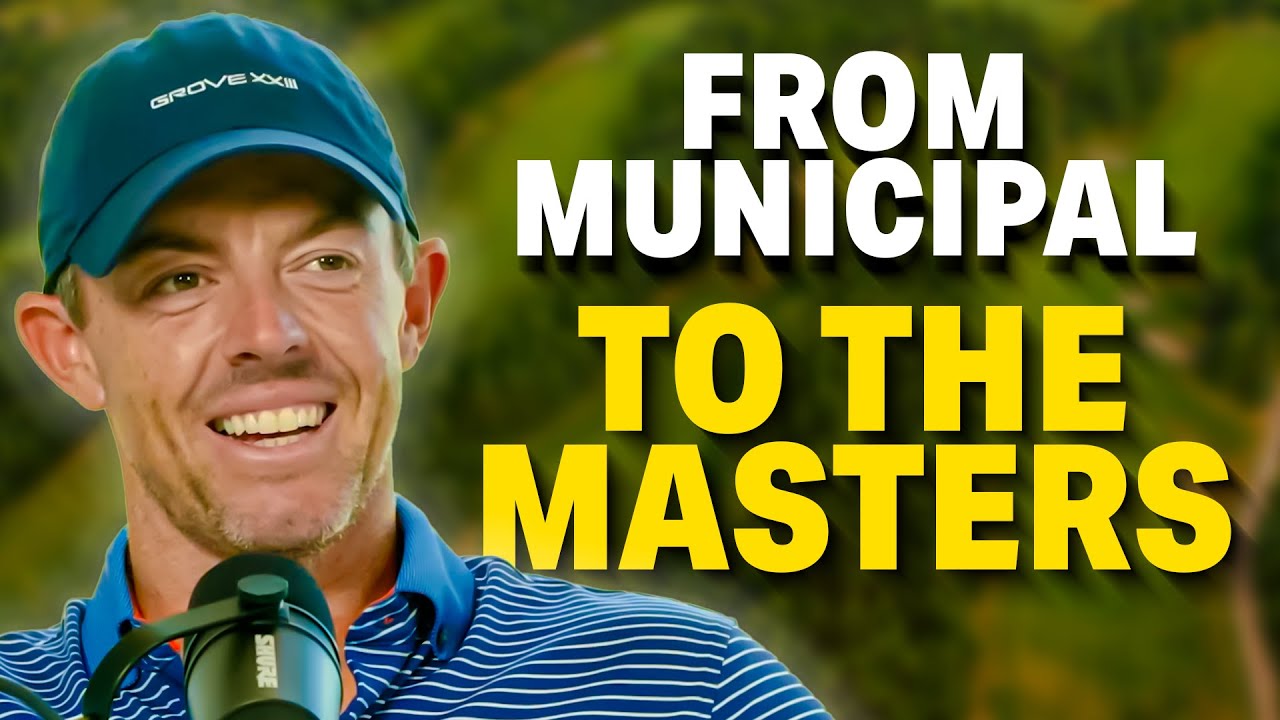
MIND & BODY
LOVE
beyond the leaderboard
The right kind of support makes all the difference says Dr Kirsten van Heerden
By GAVIN GROVES

We love the fairytales in sport. The young athlete chasing a dream. The big moment. The teary speech. But behind those dream-chasers are often quiet, committed supporters – spouses, parents, partners, siblings – who carry an emotional load just as heavy as a golf bag.
We don’t talk about it much, but being the supporter of a golfer is no small thing. You’re part motivator, part counsellor, part logistics co-ordinator. But perhaps the hardest part? Caring deeply while remembering this isn’t your dream – it’s theirs.
WHEN YOU’RE CLOSE TO THE DREAM, BUT IT’S NOT YOURS
Let’s start here: it’s OK to feel all the feelings. Pride, nerves, frustration, excitement. That’s natural. Research shows that supporters – especially parents – experience significant emotional reactions during competition. One study found that parents watching their children compete showed real physiological signs of stress: faster heart rates, higher cortisol... all of it. So, if you’ve ever felt wiped out after a tournament where you didn’t even swing a club, you’re not imagining it.
But here’s the key: you’re there to support the dream, not to drive it.
It can be tempting – especially for parents – to see their child’s success as an extension of their own. Sometimes it even starts with good intentions: ‘I just want the best for them.’ But when our dreams, hopes or unmet ambitions get tied up in their performance, the pressure can become too much – for both of you.
It’s not always about saying the right thing. It’s about being a stable, calm presence
‘I LOVE YOU, NOT YOUR SCORECARD’
One of the most protective things a supporter can do is create emotional safety. That means letting the golfer know they are loved, valued and supported no matter the result. Not just when they win. Not only when they play well.
This kind of unconditional support builds what psychologists call psychological safety – a feeling that you can mess up, struggle or fall short, and still belong. Athletes who feel this tend to be more resilient, perform better and are less likely to burn out.
It’s not always about saying the right thing. It’s about being a stable, calm presence – especially when they’re spiralling after a tough round. You don’t have to fix it, you just have to be there.
IT’S EMOTIONAL LABOUR (AND IT’S REAL)
Supporters do a kind of emotional work that often goes unseen. Sport psychology calls this ‘emotional labour’ – managing your feelings so you can help someone else through theirs. You stay calm so they don’t panic. You cheer them on even when you're full of nerves. You listen to the same tournament recap for the third time because they need to talk it out.
This emotional investment is real – and it’s draining. That’s why it’s also important to have your own identity and goals. Supporters need their sources of joy, outside the golfer’s performance. You can be there for the journey without being consumed by it.

FOR THE PARENTS READING THIS…
There’s a big difference between supporting your child and living through them. Sport researchers often talk about autonomy-supportive parenting – an approach where parents guide and encourage their child, but still give them space to make their own choices and mistakes.
That might mean asking, ‘What did you learn out there?’ instead of ‘Why did you miss that putt?’ It means celebrating the effort, the process and the growth – not just the trophy or the ranking.
Your child’s sporting journey is not your second chance. It’s their first chance. Be the steady voice that reminds them of their worth when they forget it themselves.
THE ROLE OF THE SPOUSE OR PARTNER
If you’re a spouse or partner, you’re also walking a fine line – especially when sport demands travel, attention and emotional energy. You’re there through the highs and the heartbreaks, often sacrificing your plans to support theirs.
But here’s the magic: when you stay grounded in who you are, you create space for them to do the same. You become a mirror – not of judgment, but of balance and perspective. When the world feels too focused on birdies and bogeys, you’re the person who says, ‘Let’s go get dinner and talk about something else for a bit.’

UNWAVERING SUPPORT
Rory McIlroy opens up about the incredible sacrifices his parents made for his golf career.
Being a supporter is hard. It’s vulnerable, emotional and deeply human. But it’s also beautiful. You get to walk beside someone chasing something big. You get to offer the kind of support that doesn’t show up on the leaderboard, but absolutely shapes who they are.
So next time you’re standing behind the ropes, watching the person you love take on the course, remember this: it’s not your dream. But your love and support might be what makes it possible for them to chase it – with freedom, confidence and perspective.
And that? That’s its own kind of victory.

About the author
Dr Kirsten van Heerden represented South Africa at swimming and holds a PhD in sport psychology. She has worked and travelled extensively within high performance sport for more than 15 years.
About the author
Dr Kirsten van Heerden represented South Africa at swimming and holds a PhD in sport psychology. She has worked and travelled extensively within high performance sport for more than 15 years.She has authored a book, Waking From the Dream, on the challenges athletes face when they retire from elite sport. In her podcast ‘Behind the Dream’ she talks with some of the world’s best athletes about the ups and downs of being a professional athlete. She is also the founder and chairperson of Girls Only Project – a non-profit company focusing on women in sport issues. She is in private practice at Newton Sports Agency.
Dr Kirsten van Heerden represented South Africa at swimming and holds a PhD in sport psychology. She has worked and travelled extensively within high performance
sport for more than 15 years.She has authored a book, Waking From the Dream, on the challenges athletes face when they retire from elite sport. In her podcast ‘Behind the Dream’ she talks with some of the world’s best athletes about the ups and downs of being a professional athlete. She is also the founder and chairperson of Girls Only Project – a non-profit company focusing on women in sport issues. She is in private practice at Newton Sports Agency.






